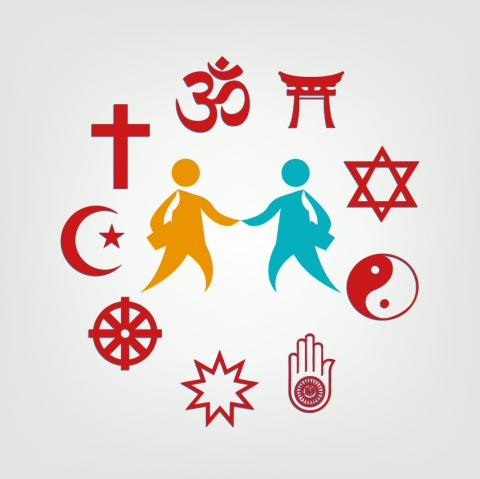Description

Copyright infringement not intended
In News
- The Supreme Court of India took serious note of a religious organisation’s objections to “scurrilous, vexatious and scandalous” allegations made against minority religions by a petitioner in his case alleging “massive” forcible religious conversions.
- The court stated that It will give a wrong signal to the minority community if Supreme Court allow this type of language in the petition.
- The court asked the petitioner to remove the offending language.
Religious conversion
- Every individual has a natural entitlement to religious faith and freedom of conscience, a right to adopt or abandoned any faith of his own choice. Religious conversion means adopting a new religion, a religion that is different from his previous religion or religion at his birth.
- Reasons behind religious conversion:
- Conversion by force.
- Conversion by offering a better life. It means offering economic incentives for one to come out of the religion.
- Conversion for marriage.
- Conversion to escape the rigid hierarchical system caste system.
- Conversions by free will or free choice as the tenets of other religions appear closer to the person.
- Conversion to get reservation benefits.
- At the central level, India does not have any law which provides any sanction in case of forcible conversions. In 1954, an attempt was made to pass the Indian Conversion (regulation and registration bill) but Parliament failed to pass it due to heavy opposition. The need of the hour is to pass a strict anti-conversion bill to curb forced conversion in society.
.jpg)
Arguments in favour of an anti-conversion bill
- These laws only ban and punish forceful religious conversion.
- Fundamental rights under Article 25 ‘Right to propagate a religion” did not extend to forced conversions.
- There is no fundamental right to convert another person to one's religion.
Arguments against the anti-conversion bill
- According to some activists, “Such laws are used to target religious minorities and interfaith couples”.
- These laws would be used to target even voluntary conversions and curb the fundamental rights of “Freedom of conscience” under Article 25.
- These Acts do not satisfy the test of reasonableness and fairness and also go against the fundamental rights under Article 14 and Article 21” of the Constitution.
Way forward
- Anti-conversion laws have been challenged in courts ever since Odisha moved the first such legislation in 1967. However, the courts have a mixed record defending the freedom of choice about religion, ruling in favour of individual liberty in some cases but not in others.
- The High Court on many occasions clearly said that while a person has the right to believe and the right to change their beliefs, they also have a right to keep their beliefs secret.
.jpg)
https://epaper.thehindu.com/Home/ShareArticle?OrgId=GQ5AKE575.1&imageview=0
https://t.me/+hJqMV1O0se03Njk9






.jpg)







